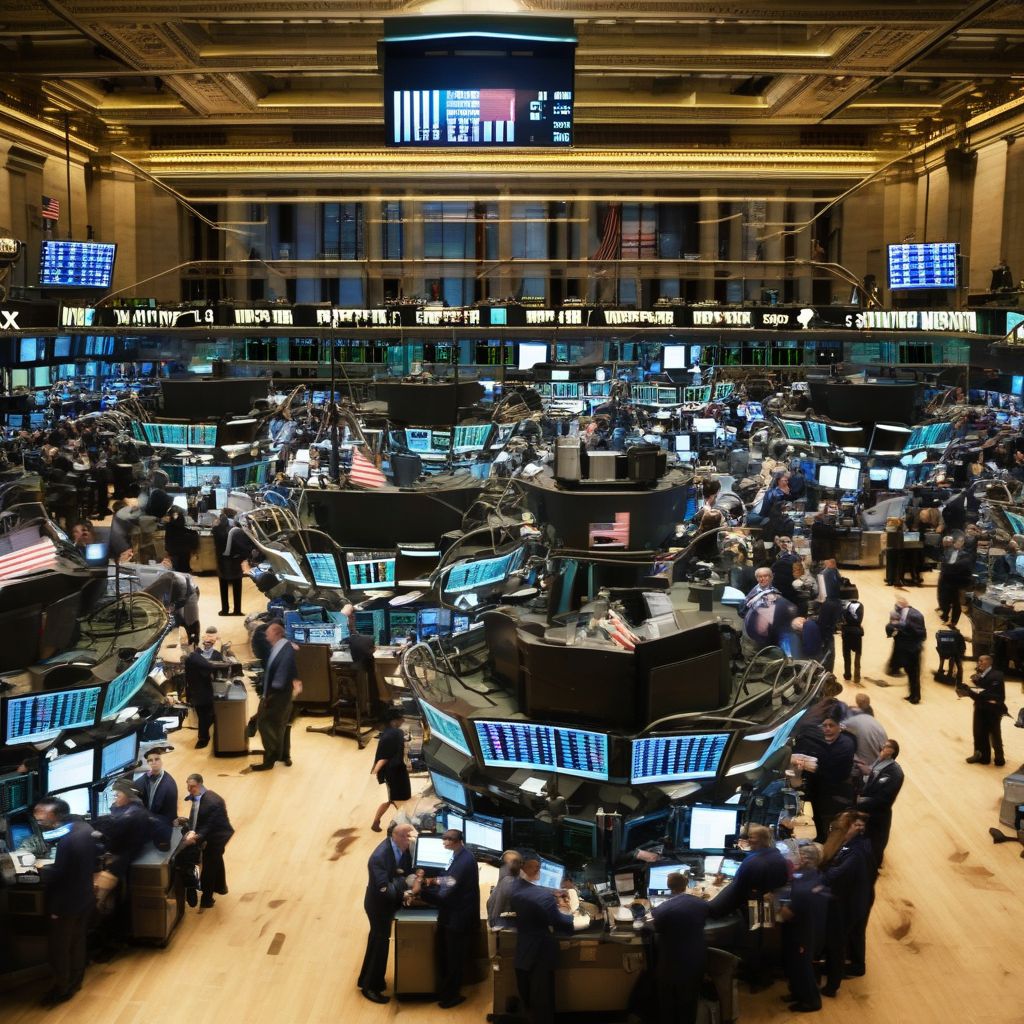Navigating the Financial World: Understanding the Largest Stock Exchanges

The global economy thrives on the continuous exchange of goods, services, and capital. At the heart of this intricate system lie stock exchanges, bustling marketplaces where buyers and sellers converge to trade fractional ownership in publicly listed companies. These exchanges play a pivotal role in facilitating capital formation, fostering economic growth, and providing investors with avenues to participate in the success of corporations. But have you ever wondered which of these financial hubs reign supreme? Join us as we delve into the captivating realm of the Largest Stock Exchanges, exploring their significance and impact on the global financial landscape.
What Defines the Largest Stock Exchanges?
Before we embark on our exploration, let’s first establish what constitutes a “large” stock exchange. While various metrics exist, market capitalization, representing the total value of all listed companies on an exchange, is widely regarded as the most reliable indicator. Put simply, a stock exchange’s size is often determined by the combined worth of the companies it hosts.
Unveiling the Titans: Top Stock Exchanges by Market Capitalization
1. New York Stock Exchange (NYSE)
Standing tall as a beacon of financial power, the New York Stock Exchange (NYSE) reigns supreme as the world’s largest stock exchange. Located on the iconic Wall Street, the NYSE boasts a staggering market capitalization exceeding $26 trillion. Home to over 2,400 listed companies, including corporate behemoths like Apple, Microsoft, and Amazon, the NYSE stands as a testament to American capitalism’s enduring legacy.
yeucaymongbo.site/wp-content/uploads/2024/08/New-York-Stock-Exchange-Trading-Floor-66b6da.jpg" alt="New York Stock Exchange Trading Floor" width="1024" height="1024">New York Stock Exchange Trading Floor
2. Nasdaq Stock Market
Following closely on the heels of the NYSE is the Nasdaq Stock Market, renowned for its focus on technology and innovation. With a market capitalization exceeding $17 trillion, Nasdaq serves as a launchpad for numerous groundbreaking companies, particularly those in the technology and biotechnology sectors. Companies like Tesla, Meta Platforms (formerly Facebook), and Alphabet (Google’s parent company) call Nasdaq their trading home, solidifying its reputation as a hotbed for growth-oriented businesses.
3. Shanghai Stock Exchange (SSE)
Representing Asia’s burgeoning economic prowess, the Shanghai Stock Exchange (SSE) claims its place among the top three largest stock exchanges globally. Boasting a market capitalization exceeding $7 trillion, the SSE serves as China’s primary equity market. While dominated by state-owned enterprises, the SSE has witnessed a surge in listings from privately held companies in recent years, reflecting China’s evolving economic landscape.
4. Japan Exchange Group (JPX)
Formed through the merger of the Tokyo Stock Exchange (TSE) and the Osaka Securities Exchange (OSE), the Japan Exchange Group (JPX) stands as a formidable force in the global financial market. With a combined market capitalization exceeding $6 trillion, JPX encompasses a diverse range of industries, including automotive giants like Toyota and Honda, electronics powerhouses like Sony and Nintendo, and financial institutions like Mitsubishi UFJ Financial Group.
5. Euronext
As Europe’s largest stock exchange, Euronext plays a pivotal role in connecting investors to companies across the continent. With a market capitalization exceeding $5 trillion, Euronext operates exchanges in Amsterdam, Brussels, Dublin, Lisbon, Milan, Oslo, and Paris, providing access to a diverse array of investment opportunities. Notable companies listed on Euronext include luxury conglomerate LVMH, oil and gas giant TotalEnergies, and pharmaceutical leader Sanofi.
The Significance of Largest Stock Exchanges: Beyond Market Size
While market capitalization serves as a primary indicator of a stock exchange’s stature, it’s crucial to recognize that their influence extends far beyond this single metric. Here’s why:
-
Drivers of Economic Growth: Stock exchanges serve as vital engines of economic growth by connecting companies seeking capital with investors eager to deploy it. This efficient allocation of resources fuels innovation, job creation, and overall economic expansion.
-
Barometers of Financial Health: Stock market movements are often seen as reflections of investor sentiment and economic outlook. A rising stock market generally indicates optimism and confidence, while a declining market can signal economic concerns or uncertainty.
-
Facilitators of Global Investment: Leading stock exchanges transcend geographical boundaries, providing investors worldwide with opportunities to participate in the growth of companies across the globe. This interconnectedness fosters global capital flows and strengthens economic ties between nations.
Exploring Further: Frequently Asked Questions
- What factors influence a stock exchange’s size?
A multitude of factors contribute to a stock exchange’s size, including the overall health of the economy, the number and size of listed companies, investor confidence, and regulatory environment.
- How do stock exchanges impact everyday investors?
Stock exchanges provide individuals with opportunities to invest in publicly traded companies, potentially growing their wealth over time. Through stock ownership, individuals can participate in the success of corporations and benefit from capital appreciation and dividend payments.
- What role do technology and innovation play in the evolution of stock exchanges?
Technology has revolutionized the way stock exchanges operate, leading to faster trading speeds, greater transparency, and increased accessibility for investors. The rise of electronic trading platforms has democratized investing, allowing individuals to participate in the market with ease.
Conclusion
From the bustling trading floors of New York to the technological hubs of Asia, the world’s largest stock exchanges stand as pillars of the global financial system. Their influence extends far beyond market capitalization, shaping economies, driving innovation, and connecting investors worldwide. As technology continues to evolve and global markets become increasingly interconnected, the role of stock exchanges in facilitating capital formation and fostering economic growth is only expected to grow in prominence. So, whether you’re a seasoned investor or just starting your financial journey, understanding the dynamics of these financial powerhouses is crucial for navigating the ever-evolving world of finance.



Leave a Comment